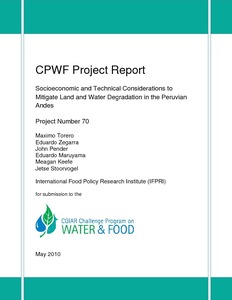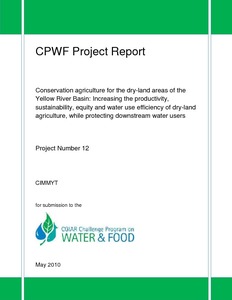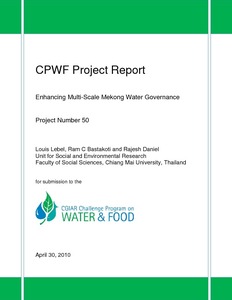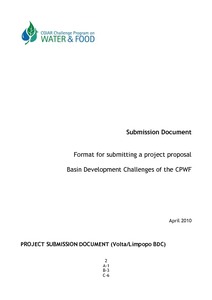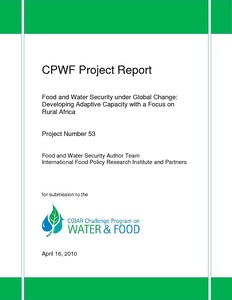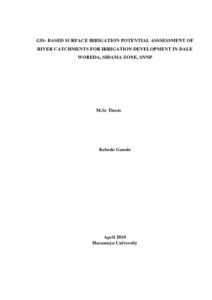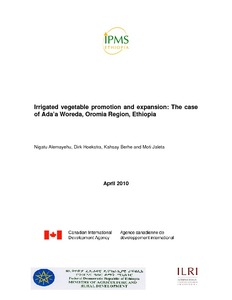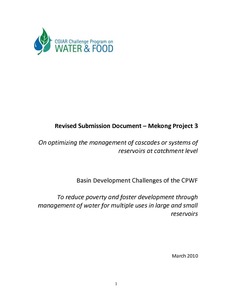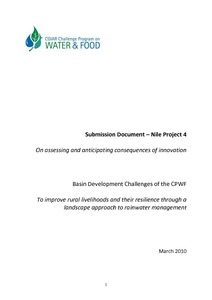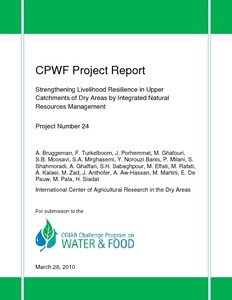Socioeconomic and technical considerations to mitigate land and water degradation in the Peruvian Andes
This project aims to increase agricultural productivity, incomes, and sustainable management of
land and water by small farmers in the rural Sierra region of Peru. Although results demonstrate
the effectiveness of increased productivity and commercialization of high value agricultural
commodities, this type of activity may be limited to certain parts of the watershed with access to
irrigation and startup capital. Interventions promoting commercialization, such as those of

